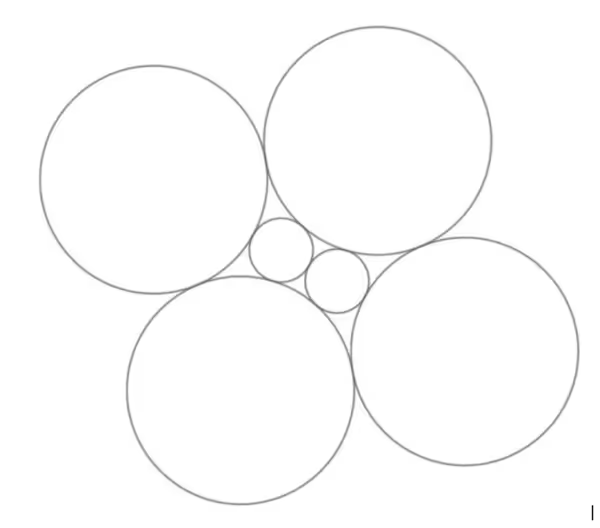This is the start of a new series on Beauty of Mathematics. I wanted to connect with more people in the math community. This feels like a good way to introduce people to each other by answering some questions. It is in the style of Inside the Actor’s Studio. The questions are the same for everyone. I’ve made some slight alterations to the questions in future interviews to make the questions more open-ended.
Anyone interested in being featured can email me at beautyofmathematics@susansilver.net
This first interview is with Colin Beveridge. You might be familiar with Colin from his writings or participation in the math community.
In a previous life, Colin worked as a researcher in solar theory, modelling the magnetic fields in the Sun’s atmosphere. He left academia to start a tutoring business in 2008, stumbled into writing several books in the For Dummies series, and now balances developing software for a US-based financial firm with raising a family. He blogs at Flying Colours Maths and runs the MathsJam in Weymouth, on the south coast of England.
- When did you consider yourself a mathematician?
I think the first time I remember saying “I’m a mathematician” rather than “I study maths” was when I started a postdoc in the Physics department. I couldn’t have people thinking I was a physicist! I do remember being described as “the best mathematician [my teacher had] ever seen” in a school report, and I remember during my undergraduate studies figuring out the link between Mersenne primes and perfect numbers, just for fun — in retrospect, that was The Moment: I’d worked out something non-trivial that wasn’t on the test.
- What is one of your favorite problems in mathematics?
These days, I tend to enjoy geometry puzzles — how do you prove this? How do you construct that? I often get sucked into a good puzzle and find I can’t focus very well on anything else until I’m happy with my solution. Right now I’m looking at this picture that looks a bit like Shaun the Sheep:

I can construct it just fine, but only by cheating and figuring out the algebra first. I want to understand why it works geometrically!
- When did you get interested in mathematics?
I remember as a young kid — maybe 3 or 4 — asking my dad to draw me “minus three teddies”, because I’d heard of negative numbers but didn’t understand them. For most of my schooling, I wasn’t interested in maths so much as good at it. I enjoyed puzzles, and I enjoyed a lot of things I didn’t realise at the time were maths — I loved trying to schedule imaginary tournaments, or find efficient ways to put my comics into order.
- Why do you think math is important?
Oh, it isn’t really. [Provocative look].
I should probably expand on that! The trouble is, what constitutes maths is really hazy and ill-defined. “Important” is tricky, too. I think everyone benefits from having some number sense, and being able to do a bit of quantitative thinking. That’s probably what most people think of as maths, and I think that’s important. I’d say that having some algebra behind you is culturally a good thing, but not necessarily important. Being able to do the specialised calculations you need for a certain profession? Sure, definitely, that’s important for some people. But what I think of as maths, looking for patterns and proofs and explanations… it’s not important, it’s just satisfying.
- Where do you communicate about your work?
These days I generally blog, or occasionally post on social media. I don’t give so many talks these days, but I do like to present at Big MathsJam. (That’s not so much my work as things I find interesting, though.)
- How would you explain your work to a non-mathematician?
My work is (at least in theory) programming a computer to make decisions about buying and selling imaginary pieces of paper. In practice, a lot of it is trying to justify the decisions to my boss without using too much maths and accepting that he wouldn’t understand it if I did.
- Do you have a favorite historical mathematician?
I like Cardano (his life was wild) and I have a soft spot for Sophie Germain. I like people who say “those restrictions are stupid and I’m not going to let them stop me” — I love Nira Chamberlain’s line that you don’t need anyone’s permission to be a great mathematician.
- Do you think math is beautiful and why?
I’m not sure “beautiful” is the word I would use, but for me there’s sometimes a moment of epiphany where everything drops into place and it’s like the perfect resolution to a piece of music or a film — as if suddenly everything makes sense. That’s certainly glorious!
- Where do you get your best ideas or what inspires you?
At the most inconvenient moment, usually! I find that I’m often thinking hard about a problem for hours and getting nowhere, but as soon as I go out for a run or go to bed, the insight hits me and I have to stop what I’m doing and write it down. (I call this idlework).
- Does your interest in math relate to any of your other interests or hobbies?
My main hobbies outside of maths are the Rubik’s cube — which is FULL of maths if you’re looking for it, but possible to do pretty well with without knowing loads of group theory — and running, which has virtually none. I tend to do mental arithmetic of the “how many more seconds do I still have to go?” type while I’m out. Or possibly stopping to make a voice note about the insight I’ve just had…
I want to applaud Colin for bravely answering my call for interviewees. My hope is that a few more people will heed the call and share their insights. Again, you can email me directly if you would like a feature.

